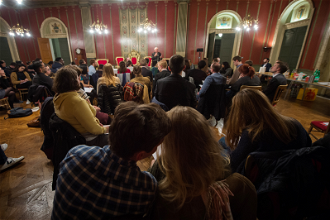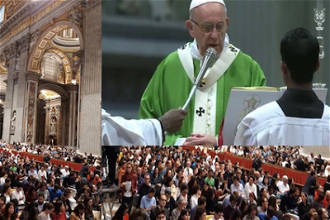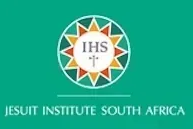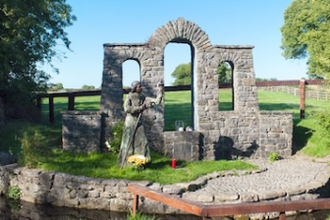View from South Africa: Synod on Youth
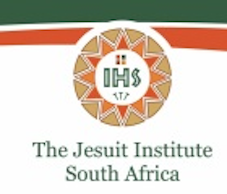
Source: Jesuit Institute South Africa
Not much has been reported in South Africa on the Synod of Bishops on Young People, the Faith and Vocational Discernment. This could be due to the fact that there is still no official English translation of the 60-page final document (a real bone of contention for those who feel that despite the fact that this gathering was branded "universal and diverse", non-Italian speakers were simply excluded). Furthermore, the non-Italian speakers were, probably, in the majority.
Despite this, a number of important issues were addressed in the final document that need attention and further reflection in Southern Africa. Here are four takeaways from the Synod:
First, migration was discussed at length. In the final text the bishops say that migration is a "paradigm of our time." The text says that migration is a "structural phenomenon" rather than a "temporary emergency." The Synod said that many young people migrate unaccompanied as a result of violence, political and religious persecution, natural disasters, poverty, human trafficking, drugs and psychological and physical abuse. South Africa is host to many immigrants. We cannot but face the issue of migration head-on. We must be aware of and counter politicians who use migrants as scape-goats for political ends.
A second point of much discussion was the role of women in the Church. The final document uses the strongest language yet from the Church, calling for women to be involved in decision-making on all levels in the Church's structure. It acknowledges that women have been excluded from decision-making processes. "The Synod recommends making everyone more aware of the urgency of an inescapable change." It also calls it a "duty of justice" and says that this requires a "courageous cultural conversion".
Third, the sexual abuse crisis the Church faces. The final text says that revelations of abuse are a "serious obstacle" to the Church's mission. It admits that many abuse cases have been handled in a manner "lacking responsibility and transparency." It acknowledges that all forms of corruption and clericalism need to be uprooted since they are intertwined with abuse. The text thanks all who have denounced the evil they underwent. It says that abuse causes suffering for the victims that "last all of one's life that no amount of repentance can remedy."
A fourth takeaway is the section on human sexuality The document admits that the Church does not have all the answers. It says that there are issues "related to the body, affectivity and sexuality that need a deeper anthropological, theological and pastoral elaboration."
During the Synod it was clear that the Church and young people are not on the same page when it comes to understanding human sexuality today. Addressing the issue of homosexuality, the bishops condemned "all discrimination and violence on a sexual basis." Given the recent reports of violence against gay people in Tanzania, this too is important for us to ponder.
Other important issues highlighted were young people and the digital world - "a new missionary field", the growing inter-generational gap, young people leaving the Church and their faith formation. Young people have choices today - like it or not - and the Church is just one amongst many. It is no longer the necessary one, for many.
Follow Russell Pollitt SJ on Twitter: @rpollittsj
Follow The Jesuit Institute on Twitter @JesuitInstitute




